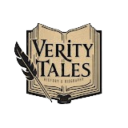Hello, guys!
In this post, we will be talking about the real-life story of NJABIA BâTÉ. The horned man that was discovered by an English explorer. So stay with us as we narrate this story.
It is the peaceful village of Fianga, deep in the dense forests surrounding remote Mayo-Kebbi in Chad and steeped in the age-old traditions and mystique.
It is there that, in 1934, there unfolded an event that would engrave a name into the annals of legend: NJABIA BâTÉ.
NJABIA BâTÉ was born with horns protruding from his head—an extremely rare and remarkable phenomenon that signified his uniqueness from birth.
Being both bewildered and reverent of his peculiar form, his parents named him “NJABIA BâTÉ,” meaning “mysterious” in their local dialect.
From early childhood, the life of NJABIA BâTÉ fell into a period of solitude, hated by villagers who feared and revered his appearance.
He had, however, grown into a wise and strong man that related to nature and understanding of traditional healing procedures with ease.
His deep knowledge and soft character commanded respect from all, even those who feared him initially.
But stories about the man with horns living in the depths of the forest slowly began to interest one Ghost Freeman. Ghost Freeman, an explorer and anthropologist.
Ghost Freeman embarked on this journey to Fianga village in remote Mayo-Kebbi in Chad.
When Freeman finally came to Fianga, he quickly adopted the local ways and endeared himself to the people with his knowledge of the language.
It was only thereafter, that he was taken to the solitary home of NJABIA BâTÉ.
Then his local guides led him through thick undergrowth, and scarcely passable underpasses to come at last to a group of isolated clay huts.
And there stood a tall, imposing figure with real horns sprouting from his skull; Freeman looked at him with a mixture of marvel and fascination as he walked up to NJABIA BâTÉ, introducing himself and explaining the reason for his call.
Initially cautious, NJABIA BâTÉ eventually agreed to share his story with Freeman.
NJABIA BâTÉ narrated his life with a voice that carried the weight of years of solitude and wisdom.
He spoke of the fears and reverence that his horn inspired, the seclusions that had caused, and the depth to which he had begun to feel love for the natural world.
Then he showcased his healing techniques, made from herbs and traditional ways passed down through generations to an open-mouthed Freeman, really amazed at his ability and knowledge.
Freeman stayed for days, documenting his practices, photographing him, and taking samples for further study.
The event would leave an indelible stamp on Freeman as its findings were published back in England, firing the imagination of the world, which would-be horned man who lived mysteriously at Fianga.
Back in Fianga, the legend of NJABIA BâTÉ grew.
He had become the epitome of resilience and wit, the epitome of the far-from-ordinary human soul.
His was a story made famous over repetitions, hence ensuring himself a niche in culture.
The heritage of NJABIA BâTÉ, healers healed, and sages regarded, lived on deep as part of the consciousness of whoever heard and seemed to see him in them, becoming them to look beyond apparency to find the extraordinary in the ordinary.
